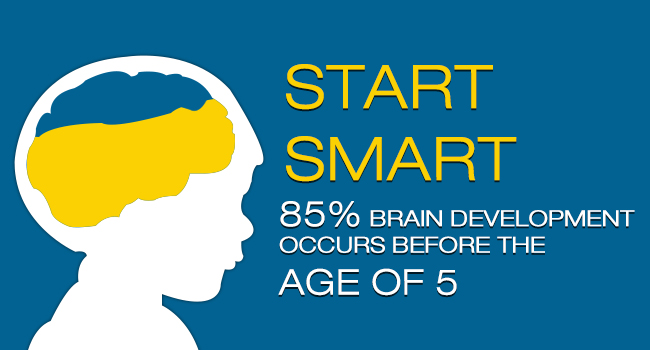“Every child should have the opportunity to receive a quality education”- Bill Frist
Providing affordable and easily accessible education to each layer of society is crucial. When it’s about education, the quality is really important compared to any other aspect.
Studies show that the human brain develops more rapidly between birth and age 5 than during any other time in a person’s life. It is important to equip children with the very best quality of education during the initial years. It is indeed shocking to know that 250 million children are unable to read, write or count well, even those with at least four years at school. Technology has brought innovations such as smart apps for preschoolers for improving childhood education.
Related: 5 Important Questions Parents Ask EYFS Providers
EYFS, the Early Years Foundation Stage is an ideal choice for parents who want their children to get quality education quite early. Education is a process and providing children with best quality education in the early years is the first stepping stone towards their successful future.
EYFS contributes to creating a better society where opportunities are equal regardless of background. Child’s physical, emotional, intellectual and social development depends on the education he/she receives. The progress of mental and physical abilities of children is at an astounding rate from birth to age of five. Children need high quality personal care as well as learning experience during this period.
Related: 14 Early Years Foundation Stage (EYFS) Blogs Every Teacher Should Read
Here is what high quality education for children does to the society;
- Less welfare assistance needed
- Fewer unemployment benefit claims
- Higher income tax payments
- Criminal justice system gets less burdened
Impact of high quality education
High quality education grows with the children like an investment.
- Never ignore the quality of education as children who receives quality education is 18% likely to be employed, 24% more likely to own a house, 53% less likely to have multiple arrests and more likely to make higher earning.
- Criminal tendency is reduced in children who receive quality education
- A new study held at Norway concluded that high-quality early childhood education offers protection against the economic decline of families
- There are noticeable changes between behaviour pattern of students who received quality education and the ones who did not
- Children belonging to low income families had behaviour problems and the pattern was opposite when the income increased
- Taking steps from an early age to improve childhood education skills could raise overall population levels of academic achievement by as much as 5%, and reduce socioeconomic inequality in education by 15%, according to international research led by the University of Adelaide
- Future education is improved by better early education foundation
- There are possibilities of education achievements to rise by 5%. 5% improvement in the educational outcome out of 620,000 pupils aged 15-16 in secondary education means that 13,500 students would be benefited out of this. 5% is not less.
- Better education will contribute to the future employment chances of the children and it will show positive reflection on the society economically
- High quality education results in personal development with better understanding of responsibilities, social development with well understanding about the social responsibilities and emotional development
Rather than a task, learning should be an experience. The diverse experiences that students acquire through education will make them thirsty for more knowledge. Successful and burden-free learning results in happier students.
Related: 10 EYFS Activities To Improve Children’s Numerical Ability
Functions of EYFS include
Functions of EYFS is not limited in helping parents choose better, instead it concentrates on more.
- Learning is encouraged through experience. The learning abilities of children are motivated and stimulated
- Secure environment is provided to the children to learn
- Visual aids are encouraged while teaching
- Learning materials are organised and they are imaginatively used
- Social and personal language of children are also taken in to consideration
- Basic skills of children like physical coordination, speech and communication are given support
- Stories, songs, games, drawing and imaginative play are used to encourage the mathematical and creative development of children
- Curiosity and knowledge of children are developed
- Indoor and outdoor works are planned and coordinated among teaching assistants, nursery nurses as well as volunteer helpers
- Observing and recording the progress of each child
- During both inside and outside activities safety of children and staff is maintained
